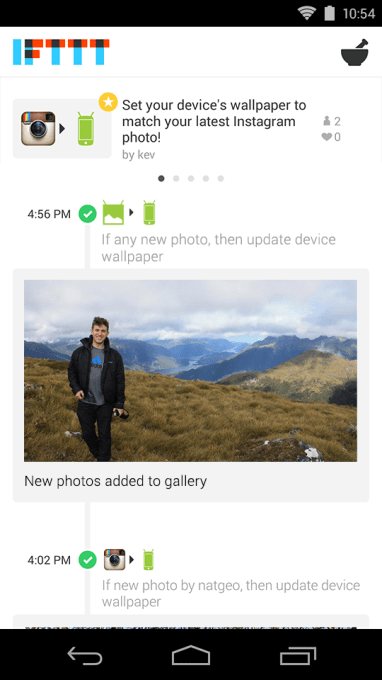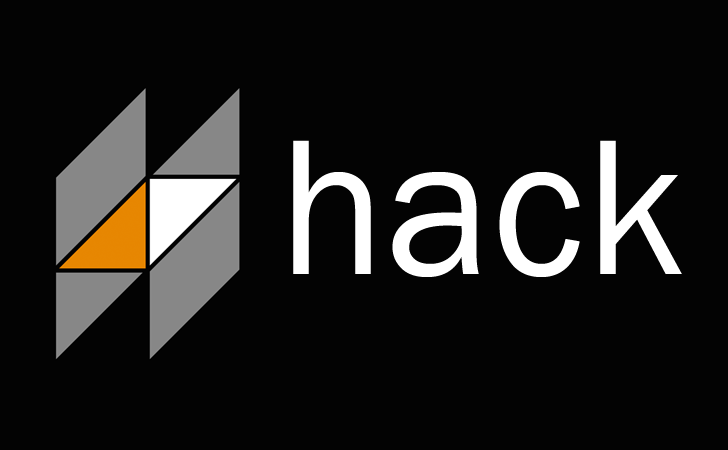This Thursday is the 1st lecture in the annual Gibbons Memorial lecture series. The first lecture is by Professor Miriam Lips of the School of Government, Victoria University of Wellington, titled: What does Privacy Mean to New Zealanders in the Internet Age?
When: 6pm (refreshments) for 6.30pm lecture start, Thursday 1st May, 2014
Where: Owen G Glenn Building, Room OGGB3/260-092
Note that there is public parking in the basement of the Owen G Glenn Building at 12 Grafton Road.
Miriam Lips is the first Professor of E-Government at Victoria University of Wellington. This chair is sponsored by industry - Datacom System, FX Networks, Microsoft New Zealand – and the NZ government - the State Services Commission and the Department of Internal Affairs.
Professor Lips holds a MSc and a PhD from Erasmus University Rotterdam and an EMPA from Erasmus University, Leiden University and the Hochschule für Verwaltungswissen-schaften, Speyer. She has held academic positions at the University of Oxford and Tilburg University. Her current research includes management of online identity, use of social media for public engagement, the use of e-campaigning and the use of new media in disaster management.
Synopsis: Based on a 2013 survey with a representative sample of the New Zealand population, this talk will explore how, and to what extent, different groups of the New Zealand population are disclosing and protecting their personal information in varying online relationships with the private sector, government, and family and friends through social networking. The meaning of privacy for people from different age groups, ethnicities, educational backgrounds, and income groups will be discussed, and the implications for a population which increasingly exchanges their identity information online, against the backdrop of new privacy challenges and risks emerging from the use of 'Big Data'.
Wednesday, April 30, 2014
Tuesday, April 29, 2014
Do you use Internet glue
Do you use Internet glue? Do you know what it is? Basically it's a web service that links two web services together; hence the name Internet glue. For example, actions you take in your webmail system could to update your ToDo list, or add a calendar reminder. Back in January I blogged about how I use IFTTT (if this then that) to create and disseminate these blog posts. Increasingly though these systems are starting to integrate with our smartphones. IFTTT can use the iPhone's location to trigger actions and can integrate with iOS reminders, contacts and the camera roll. IFTTT has now launched on Android with a deeper set of integrations with the OS than their iOS offering. This is possible because Android has a "more laissez-faire attitude when it comes to allowing apps to extend their tentacles into core OS functions."
If you haven't started using IFTTT I highly recommend you do. Not only can it smooth your workflow but it can also be fun.
If you haven't started using IFTTT I highly recommend you do. Not only can it smooth your workflow but it can also be fun.
Friday, April 25, 2014
Time travel with Google Street View
I always knew Google would do this, it was so obvious. Google Street View now has a new feature that lets you go back in time with Street View to see how any location looked right back to when Google's cameras first captured the view. Now when you start Street View you'll see a time stamp on the pop-up Street View window and a time-line with a slider. You can select from any of the points on the slider.
Your street, like mine, probably hasn't changed much. Time magazine has put together a series of time-lapse sequences that show iconic buildings like NYC's One World Trade Center rising out of the ground over the years. This feature will be fascinating to explore in 20 to 30 years time.
Your street, like mine, probably hasn't changed much. Time magazine has put together a series of time-lapse sequences that show iconic buildings like NYC's One World Trade Center rising out of the ground over the years. This feature will be fascinating to explore in 20 to 30 years time.
Tuesday, April 22, 2014
Alan #Turing infographic
Steve Ollington and the Manchester Jury's Inn, have created an online infographic that's a mini-tutorial on Turing's life and work. Steve write, the Jury's Inn: "...recognise his [Alan Turing's] importance as key figure in British History and a national treasure, and they liked the thought of providing a memorial that would engage, teach and honour a great figure, especially one who is such a local hero."
Their infographic succinctly (and attractively) sums up many of the key points of Turing's story and is a great point of access for those who are just learning about the man and his place in history. It's reproduced below, and you can visit it on the Jury's Inn site here. [This was brought to my attention by the Turing Centenary blog]
Alan Turing of Manchester, by Jurys Inn Manchester Hotel

Their infographic succinctly (and attractively) sums up many of the key points of Turing's story and is a great point of access for those who are just learning about the man and his place in history. It's reproduced below, and you can visit it on the Jury's Inn site here. [This was brought to my attention by the Turing Centenary blog]
Alan Turing of Manchester, by Jurys Inn Manchester Hotel

Wednesday, April 16, 2014
Keeping Secrets: Privacy and Security in the Information Age
As our wonderful Indian Summer draws to an end it's time to welcome winter, and for me one of its highlights are the annual series of free public Gibbons Lectures. With the Heartbleed Bug recently in the news alongside the US government mass surveillance of us all, as revealed by Edward Snowden, computer security and privacy has never been more topical. As a consequence this years Gibbons Lectures have the theme Keeping Secrets: Privacy and Security in the Information Age. All of the talks are on Thursdays at 6.30pm, with the public invited from 6pm for free refreshments. The venue is room 260-092 on level-0 of the Owen Glenn building at the University of Auckland on Grafton Road (parking is available under the building.) The schedule is:
1st May: What does Privacy Mean to New Zealanders in the Internet Age?
Professor Miriam Lips
School of Government
Victoria University of Wellington
8th May: Security in Mobile Devices
Dr Giovanni Russello
Department of Computer Science
The University of Auckland
15th May: Public Key Cryptography: Computation, Cash and John Nash
Associate Professor Steven Galbraith
Department of Mathematics
The University of Auckland
22nd May: The Psychology of Computer Insecurity
Dr Peter Gutmann
Department of Computer Science
The University of Auckland
1st May: What does Privacy Mean to New Zealanders in the Internet Age?
Professor Miriam Lips
School of Government
Victoria University of Wellington
8th May: Security in Mobile Devices
Dr Giovanni Russello
Department of Computer Science
The University of Auckland
15th May: Public Key Cryptography: Computation, Cash and John Nash
Associate Professor Steven Galbraith
Department of Mathematics
The University of Auckland
22nd May: The Psychology of Computer Insecurity
Dr Peter Gutmann
Department of Computer Science
The University of Auckland
Thursday, April 10, 2014
Farewell to Microsoft XP
You probably heard that this week Microsoft ceased supporting their venerable old operating system XP - if you haven't, and you run XP, you need to be aware that your old workhorse may be increasingly vulnerable to hackers. The general advice is to now consider upgrading your PC to a new OS (Win 7 or 8) but this expensive option may not be feasible for some. So if you want to continue using XP here are 10 tips to keep yourself and XP safe.
Finally, this might amuse you - a review from September 2001, of the then brand new, Microsoft XP by CNet. What's truly shocking now is the price, $118.95 (USD) to upgrade from Win 95 or 98. Not hard to see why Microsoft was so profitable.
Finally, this might amuse you - a review from September 2001, of the then brand new, Microsoft XP by CNet. What's truly shocking now is the price, $118.95 (USD) to upgrade from Win 95 or 98. Not hard to see why Microsoft was so profitable.
Tuesday, April 8, 2014
Croudfunding for a computer history display - IBM 5080
The Computer Science Department at The University of Auckland maintains displays on the history of computing that are open for public viewing. This is not an activity that a University would normally fund out of its budget, which is for teaching and research. Right now we have the opportunity to mount a display of engineering Computer Aided Design terminals from the 1980s - these were expensive machines that were required before Computer Graphics became commonplace. The new display will show an IBM 5080 work station set up as it was in use - there will also be other terminals in the display. We need to have a cabinet built to display and protect these items but have no funds to spare at present, hence this first attempt at crowdfunding. If you might be interested in supporting this new display please visit our site on pledgeme.co.nz.
Friday, April 4, 2014
Facebook Introduces ‘Hack,’ the programming language of the future
Facebook engineers Bryan O’Sullivan, Julien Verlaguet, and Alok Menghrajani have spent the last few years building a programming language unlike any other that Facebook uses to create its web-based system. The language is called Hack and the language's website says "Hack is a programming language for HHVM that interoperates seamlessly with PHP. Hack reconciles the fast development cycle of PHP with the discipline provided by static typing, while adding many features commonly found in other modern programming languages. Hack provides instantaneous type checking via a local server that watches the filesystem. It typically runs in less than 200 milliseconds, making it easy to integrate into your development workflow without introducing a noticeable delay." Hack is open source and available for you to use now. You can find out more on the hack.org website or in this post by Hacker News.
Tuesday, April 1, 2014
Compare: How London Looks on Google vs. Paintings From the 1700s
Nothing serious here, but just a delightful series of pictures that superimpose some 18th-century paintings of London streets over their corresponding Google Street View images. In many cases the streets have barely changed although the details have. View the full set of images on Wired.
Subscribe to:
Posts (Atom)







